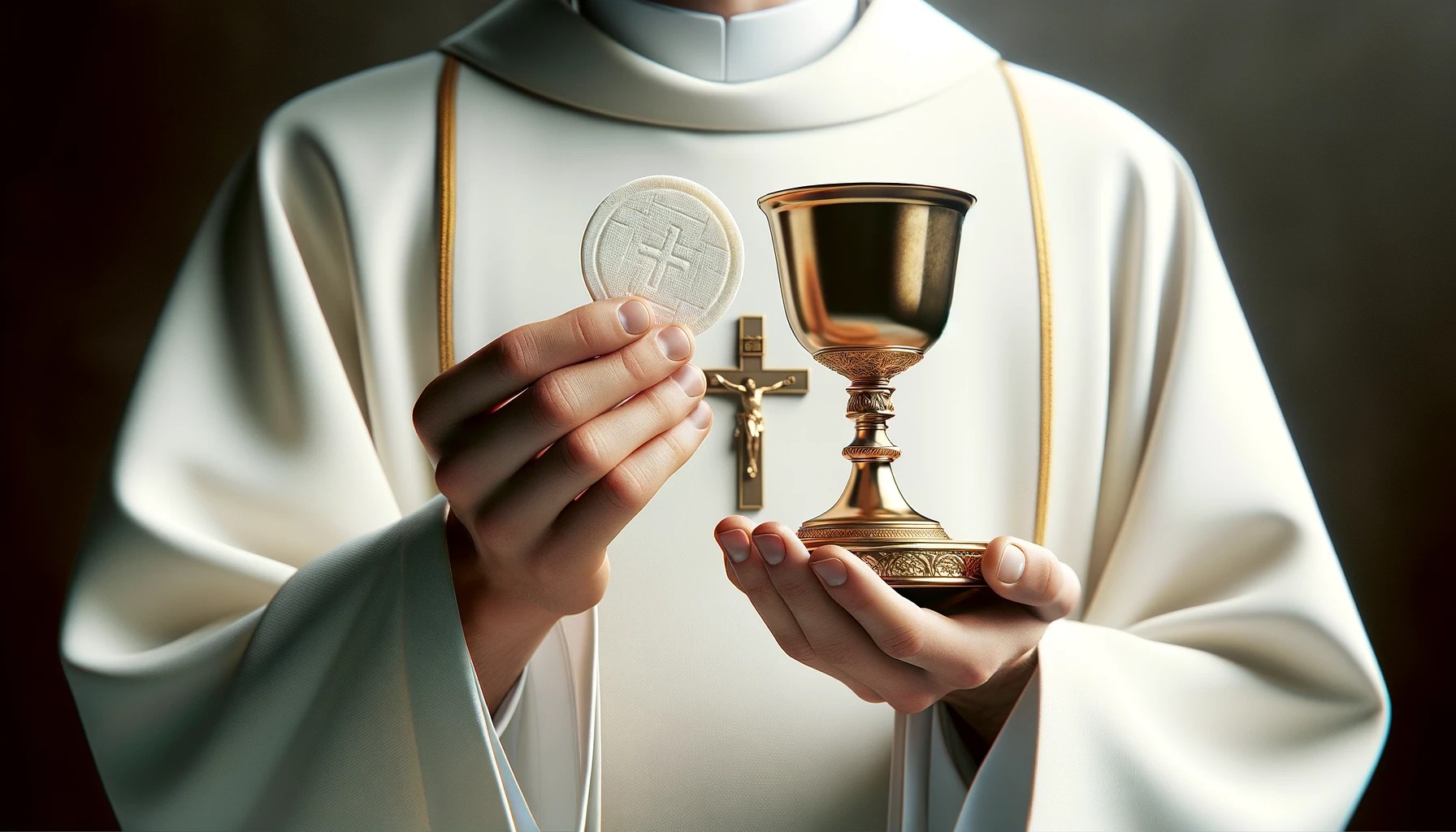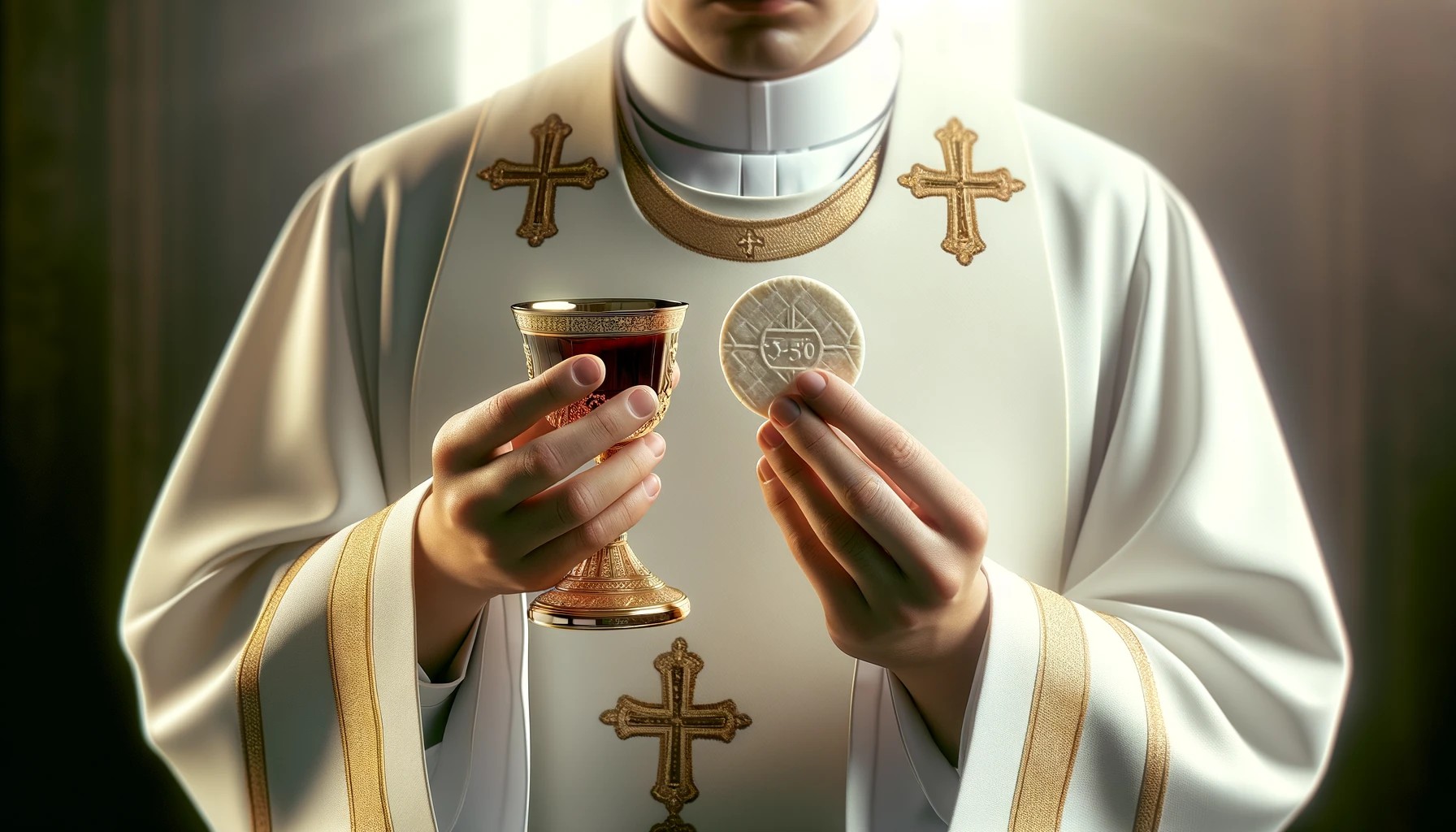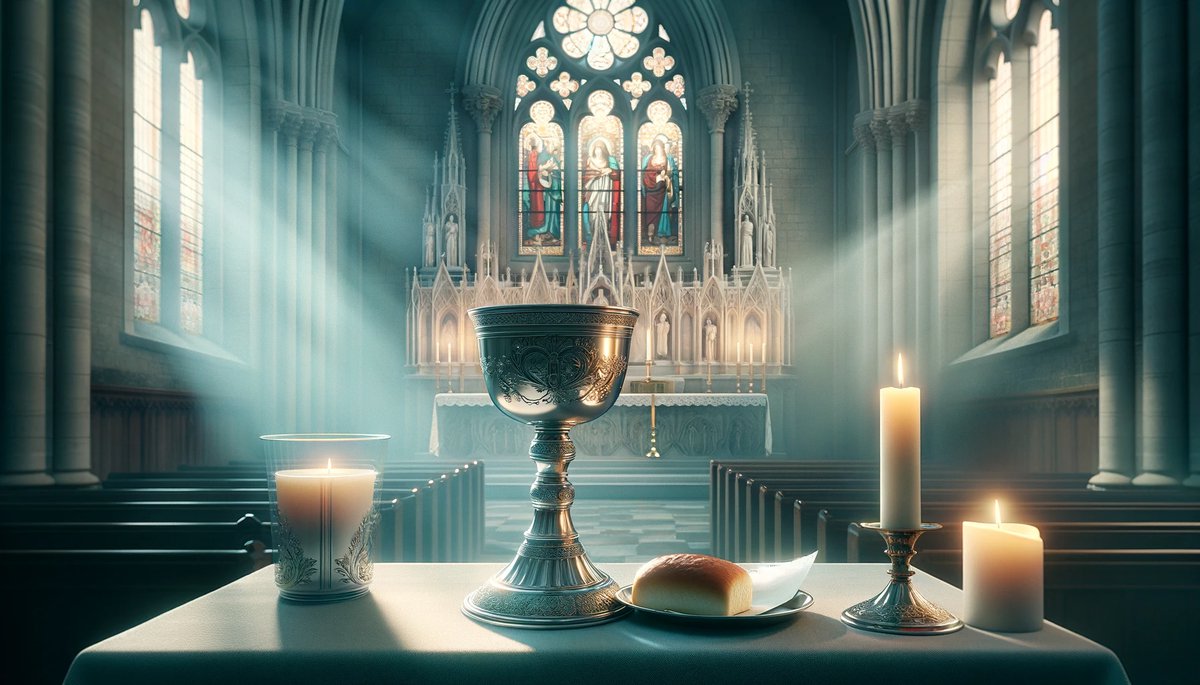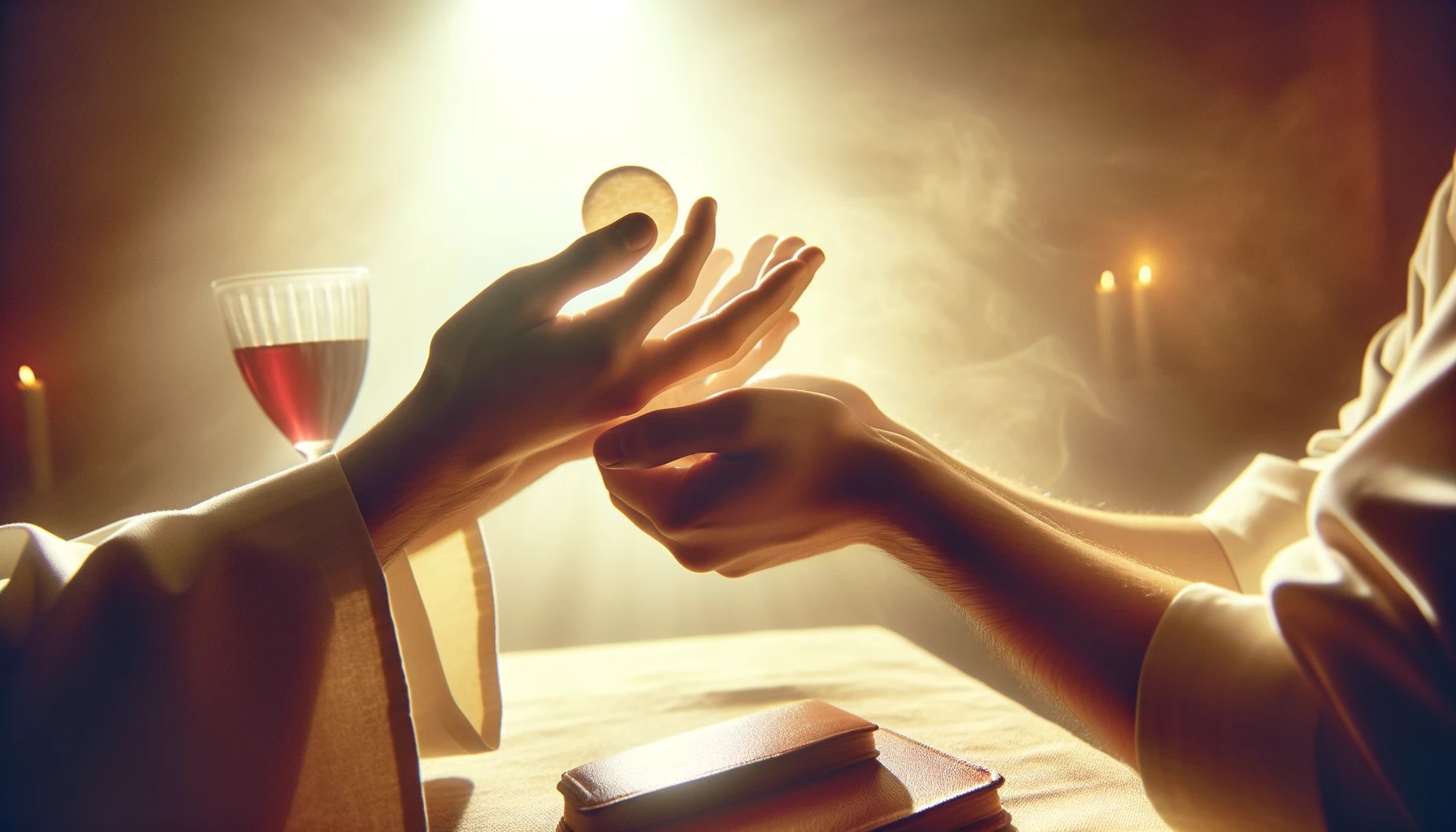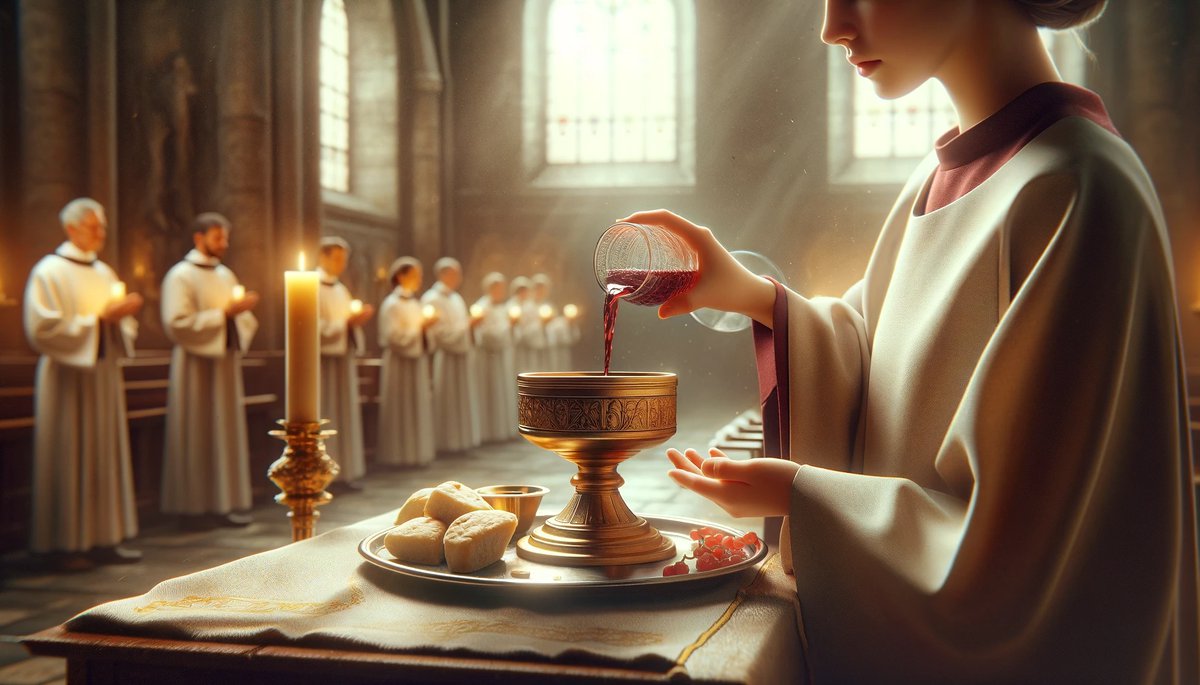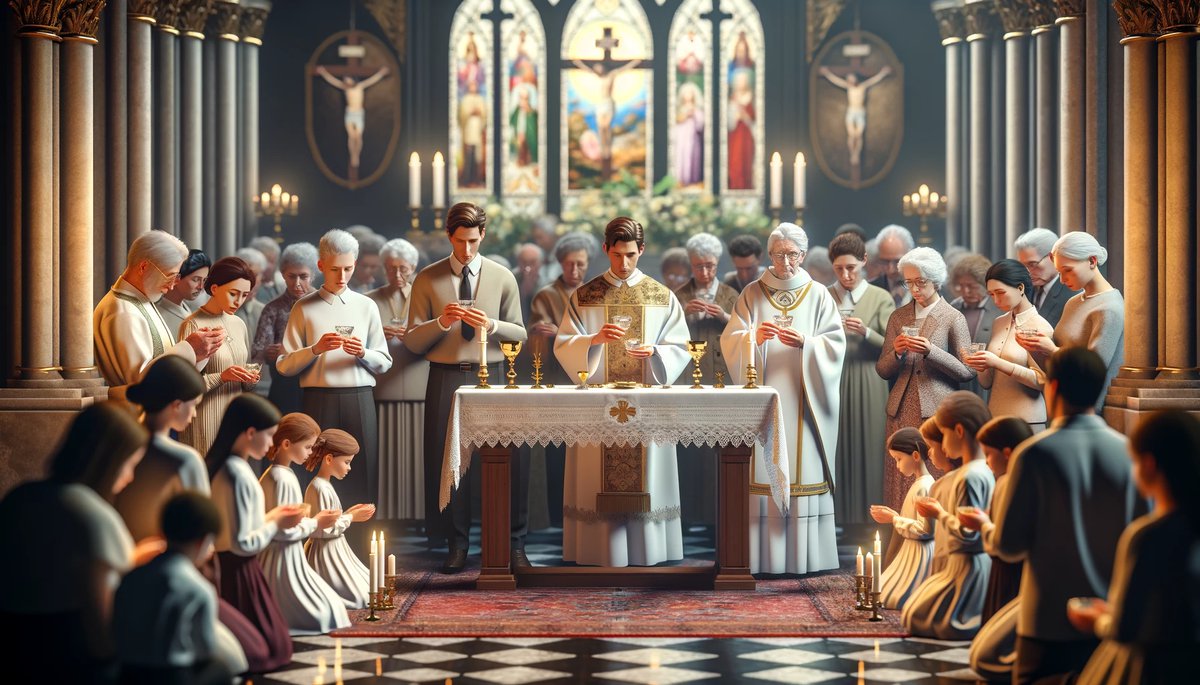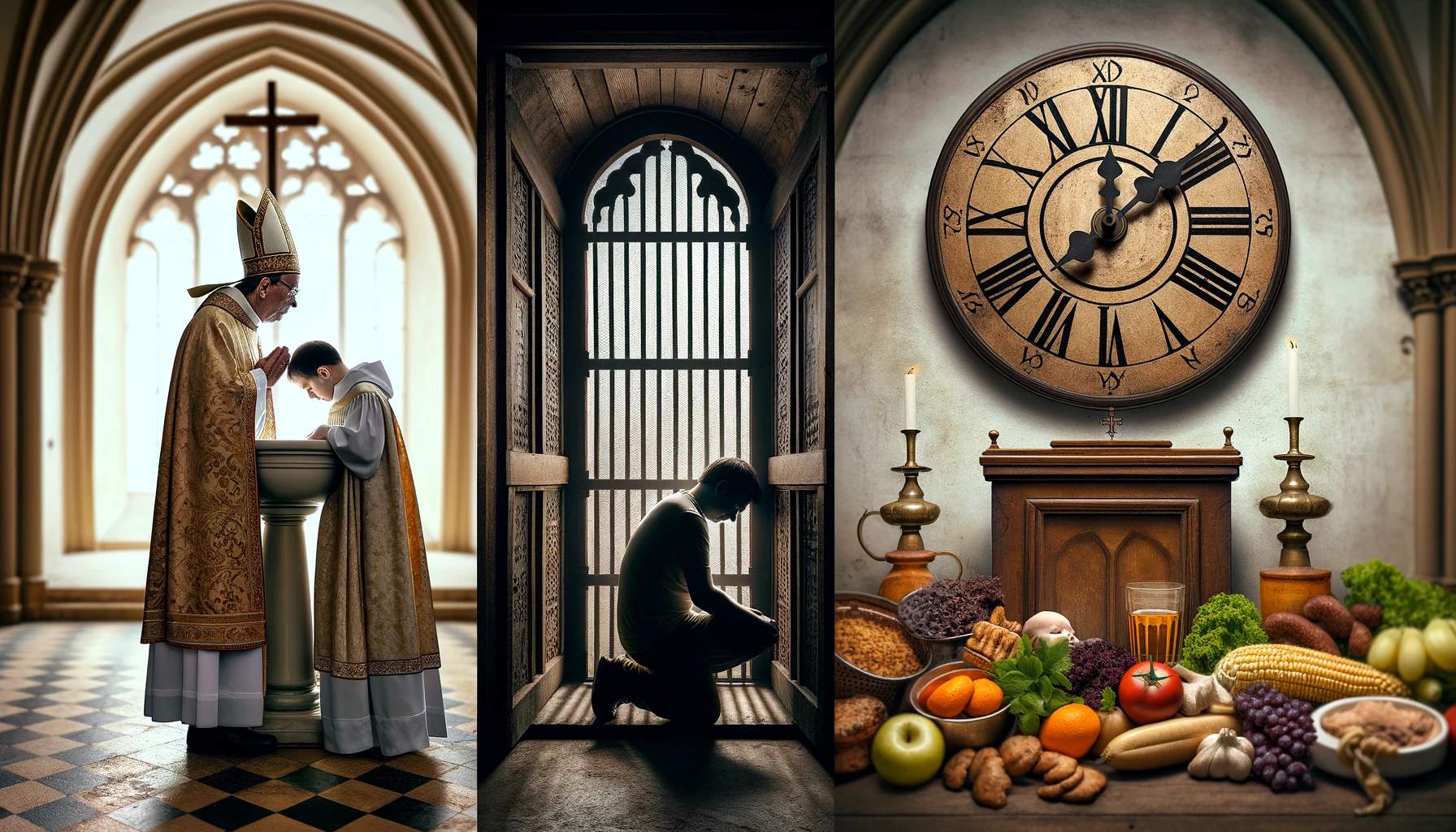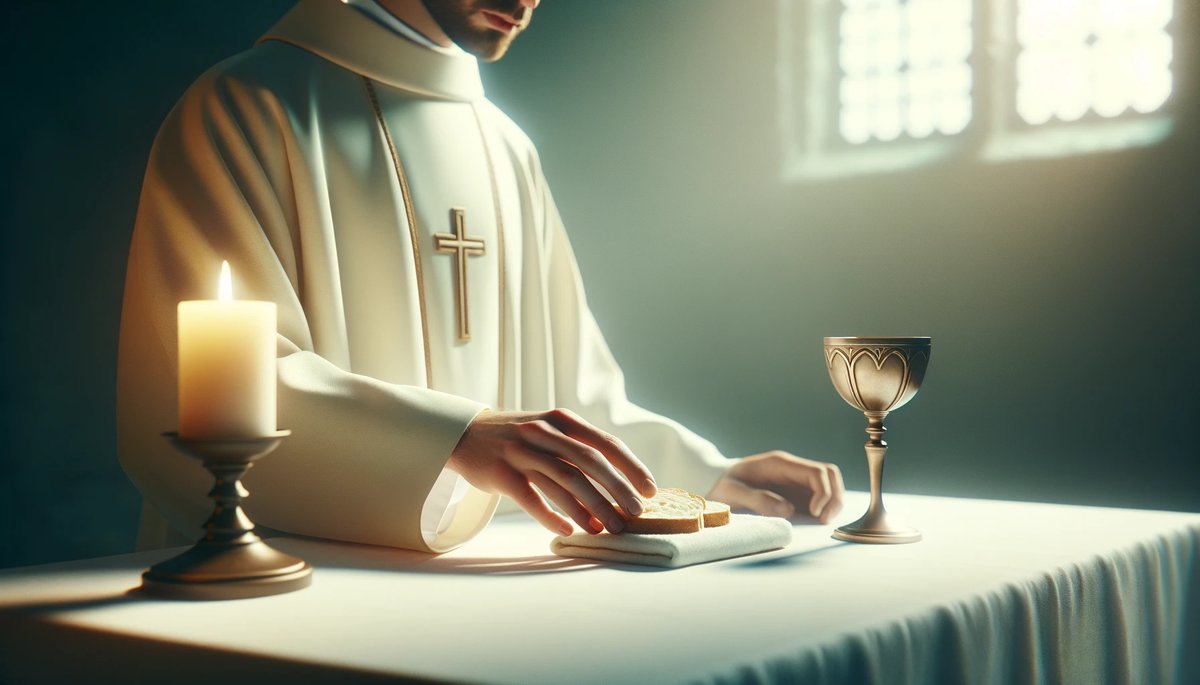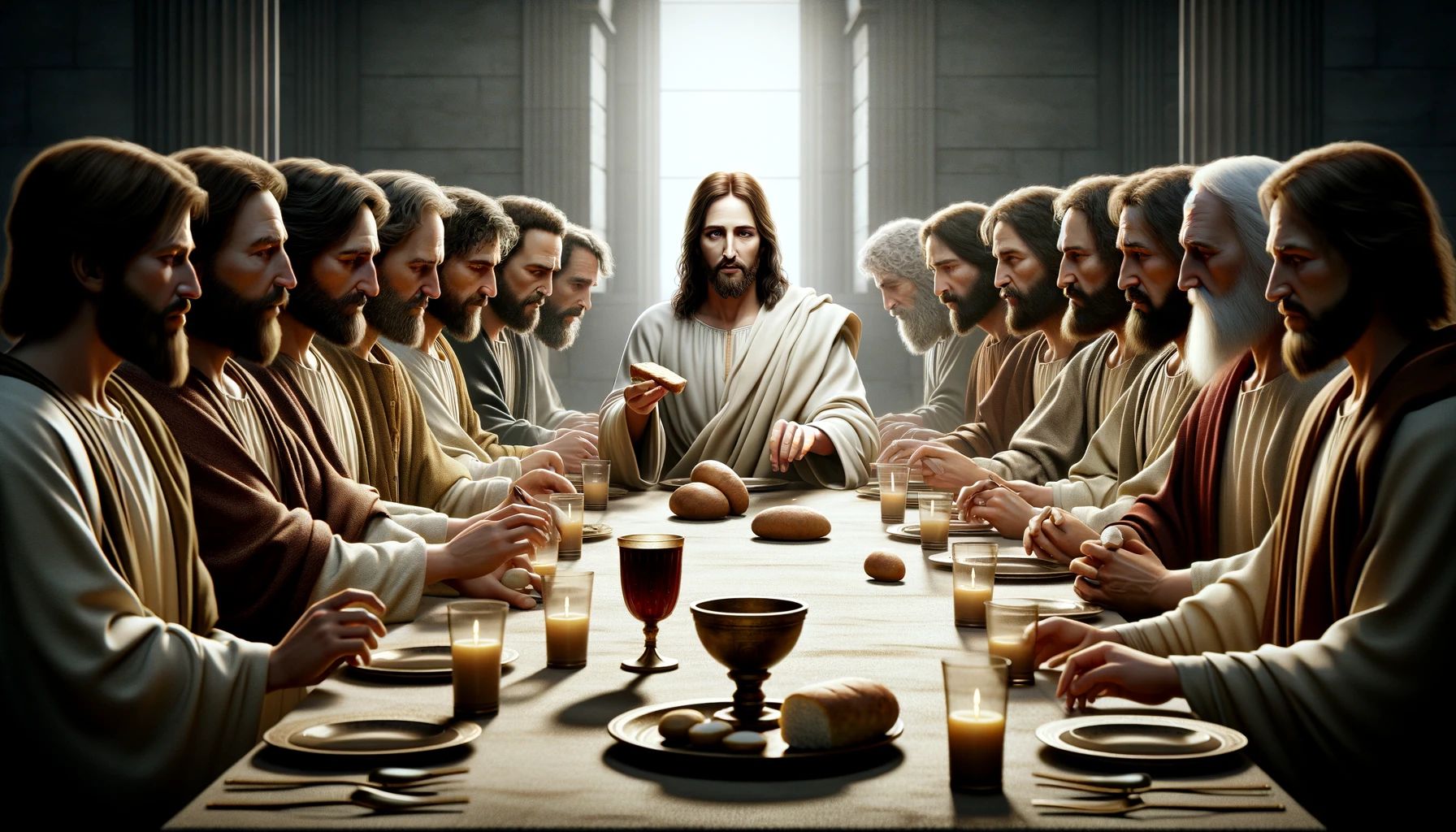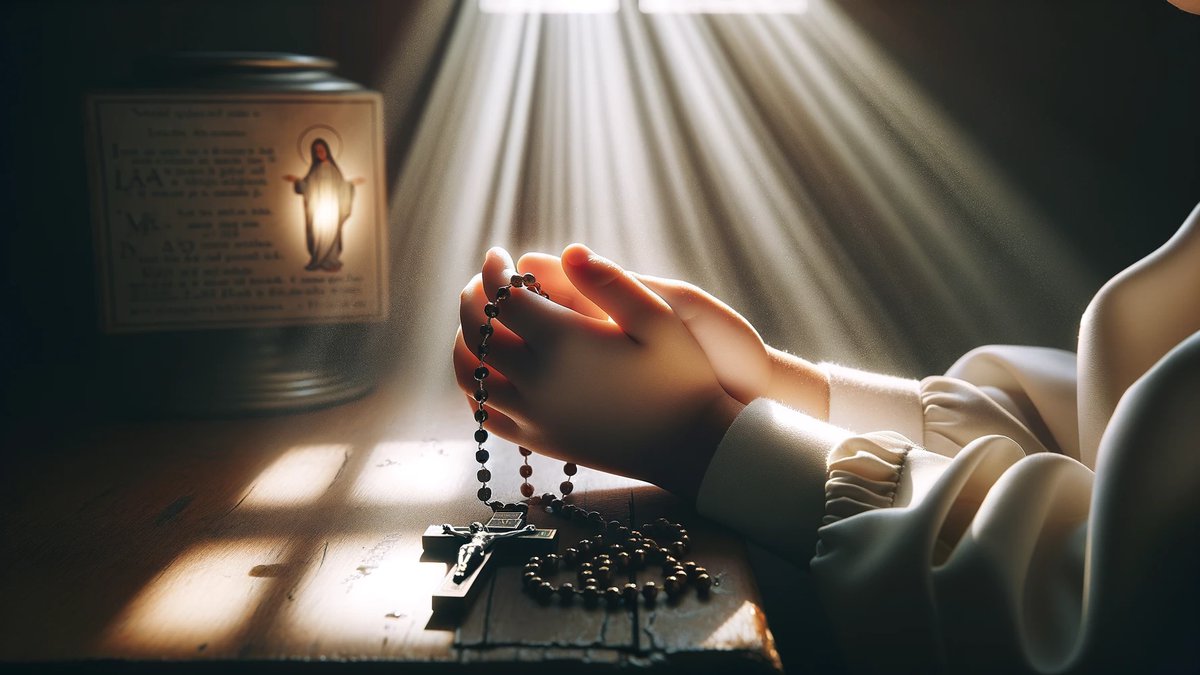Home>Theology and Spirituality>What Does Holy Communion Celebrate


Theology and Spirituality
What Does Holy Communion Celebrate
Published: February 25, 2024
Peter Smith, Editorial Director at Christian.net, combines deep insights into faith, politics, and culture to lead content creation that resonates widely. Awarded for his contributions to religious discourse, he previously headed a major organization for religious communicators, enhancing dialogue on faith's societal impacts.
Discover the significance of Holy Communion in theology and spirituality. Learn what this sacred ritual celebrates and its importance in Christian faith.
(Many of the links in this article redirect to a specific reviewed product. Your purchase of these products through affiliate links helps to generate commission for Christian.net, at no extra cost. Learn more)
Table of Contents
Introduction
Holy Communion, also known as the Eucharist or the Lord's Supper, holds a central place in Christian worship and theology. It is a sacred ritual that has been observed for centuries, symbolizing the core tenets of the Christian faith. The act of partaking in Holy Communion is deeply meaningful and significant for believers, as it commemorates the last supper of Jesus Christ with his disciples and embodies the spiritual nourishment and unity within the Christian community.
The practice of Holy Communion transcends denominational boundaries, as it is revered by Catholics, Protestants, and Orthodox Christians alike. This unifying aspect underscores the universal importance and reverence attached to this sacred sacrament. The rich history, symbolism, and theological significance of Holy Communion contribute to its enduring relevance in the lives of Christians around the world.
As we delve into the multifaceted aspects of Holy Communion, we will explore its profound meaning, historical roots, symbolic representations, and its pivotal role in shaping the Christian faith. By gaining a deeper understanding of Holy Communion, we can appreciate its enduring impact on the spiritual lives of believers and its significance within the broader context of Christian worship and tradition.
Read more: What Does Holy Communion Symbolize
The Meaning of Holy Communion
At its core, Holy Communion represents the spiritual nourishment and unity within the Christian community. It is a sacred ritual that commemorates the last supper of Jesus Christ with his disciples, as described in the New Testament. The act of partaking in Holy Communion holds profound significance, as it symbolizes the sacrificial death and resurrection of Jesus Christ, central to the Christian faith.
Holy Communion is a tangible expression of the spiritual bond between believers and Christ. Through the consumption of bread and wine (or grape juice in some traditions), participants symbolically partake in the body and blood of Christ, signifying their union with him and with one another. This act of sharing in the elements fosters a sense of community and solidarity among worshippers, reinforcing the fundamental Christian principle of love and fellowship.
Furthermore, Holy Communion serves as a poignant reminder of Christ's redemptive sacrifice. The broken bread symbolizes Christ's body broken for humanity, while the wine represents his blood shed for the forgiveness of sins. This profound symbolism underscores the foundational Christian belief in the atoning work of Jesus Christ, offering salvation and reconciliation to all who partake in faith.
The ritual of Holy Communion also carries a forward-looking dimension, pointing to the eschatological hope of the Christian faith. It anticipates the future banquet in the kingdom of God, where believers will commune with Christ in a state of eternal joy and fulfillment. This forward-looking aspect instills a sense of hope and expectancy within the hearts of believers, reinforcing their faith in the ultimate fulfillment of God's redemptive plan.
In essence, the meaning of Holy Communion encompasses spiritual nourishment, communal unity, remembrance of Christ's sacrifice, and anticipation of the eschatological feast. It serves as a profound expression of faith, binding believers to the historic, redemptive work of Christ and to one another in a shared journey of discipleship and devotion.
The History of Holy Communion
The history of Holy Communion can be traced back to the last supper of Jesus Christ with his disciples, as documented in the New Testament. This significant event, which took place during the Passover feast, holds profound theological and historical importance in the development of the Holy Communion ritual.
During the last supper, Jesus shared bread and wine with his disciples, instructing them to partake in remembrance of him. This act of sharing the elements symbolized the impending sacrifice of Christ's body and blood, foreshadowing the redemptive events that would unfold in the crucifixion and resurrection. The last supper thus serves as the foundational narrative for the establishment of Holy Communion within Christian tradition.
In the early Christian church, the practice of Holy Communion evolved as a central rite of worship and fellowship. The apostle Paul, in his first letter to the Corinthians, provides insights into the celebration of the Lord's Supper within the early Christian community. He emphasizes the solemnity and reverence with which the believers partook in the bread and wine, underscoring the spiritual significance of the ritual.
Over the centuries, various theological perspectives and liturgical practices surrounding Holy Communion emerged within the diverse branches of Christianity. The early church fathers, such as Ignatius of Antioch and Justin Martyr, offered valuable insights into the Eucharistic theology and its role in the life of the church. Their writings and teachings contributed to the formulation of the theological framework underpinning Holy Communion.
During the medieval period, the theological understanding of Holy Communion underwent profound scrutiny and debate, leading to theological developments such as transubstantiation, consubstantiation, and memorialism. These theological perspectives, championed by influential theologians and church leaders, shaped the doctrinal landscape of Holy Communion within Catholicism, Protestantism, and Orthodox Christianity.
The Protestant Reformation, spearheaded by reformers such as Martin Luther, John Calvin, and Ulrich Zwingli, brought about significant reforms in the understanding and practice of Holy Communion. The reformers emphasized the primacy of scripture and sought to restore the Eucharistic celebration to its biblical and theological foundations, leading to diverse interpretations and practices across Protestant denominations.
In contemporary times, Holy Communion continues to be a central element of Christian worship, observed with reverence and devotion across denominational lines. The rich historical tapestry of Holy Communion, spanning from the early church to the present day, reflects its enduring significance as a sacred sacrament that encapsulates the core tenets of the Christian faith.
The historical trajectory of Holy Communion underscores its integral role in the life of the church, serving as a tangible link to the origins of Christian worship and theology. This historical continuum provides a profound context for understanding the depth and richness of the Holy Communion tradition within the broader narrative of Christian history and spirituality.
The Symbolism of Holy Communion
The symbolism of Holy Communion encompasses profound theological and spiritual significance, encapsulating core elements of the Christian faith. At its essence, Holy Communion serves as a symbolic representation of Christ's sacrificial death and resurrection, as well as a tangible expression of the spiritual nourishment and unity within the Christian community.
The bread and wine, or grape juice in some traditions, hold symbolic significance within the context of Holy Communion. The act of partaking in the bread symbolizes the broken body of Christ, signifying his sacrificial death on the cross for the redemption of humanity. This symbolism harkens back to the last supper, where Jesus took bread, blessed it, and broke it, instructing his disciples to partake in remembrance of him. The broken bread thus becomes a poignant symbol of Christ's selfless sacrifice, embodying the redemptive love and atoning work of Jesus on behalf of humanity.
Similarly, the wine represents the blood of Christ, shed for the forgiveness of sins. As participants partake in the cup, they symbolically commune with the life-giving essence of Christ's sacrifice, acknowledging the profound impact of his blood poured out for the salvation and reconciliation of humanity. This symbolic act of drinking from the cup underscores the transformative power of Christ's redemptive work, offering spiritual nourishment and renewal to those who partake in faith.
Moreover, Holy Communion serves as a powerful symbol of communal unity and fellowship within the Christian community. As believers partake in the elements together, they express their shared identity as members of the body of Christ. The act of sharing in the bread and wine fosters a sense of spiritual communion and solidarity, emphasizing the interconnectedness of believers in their shared faith and devotion to Christ. This communal aspect of Holy Communion reinforces the fundamental Christian principle of love and fellowship, uniting worshippers in a shared experience of worship and remembrance.
Furthermore, the symbolism of Holy Communion extends to the eschatological hope of the Christian faith. It points to the future banquet in the kingdom of God, where believers will commune with Christ in a state of eternal joy and fulfillment. This forward-looking dimension of Holy Communion instills a sense of hope and expectancy within the hearts of believers, reminding them of the ultimate fulfillment of God's redemptive plan and the promise of eternal communion with Christ.
In essence, the symbolism of Holy Communion encompasses the profound representation of Christ's sacrifice, spiritual nourishment, communal unity, and the anticipation of the eschatological feast. It serves as a tangible expression of the core tenets of the Christian faith, encapsulating the redemptive love of Christ and the communal bond shared among believers.
The Importance of Holy Communion in Christianity
Holy Communion holds profound importance in Christianity, serving as a central sacrament that embodies the core tenets of the Christian faith. Its significance permeates the spiritual, communal, and theological dimensions of Christian worship, shaping the beliefs and practices of believers across denominational lines.
At the heart of its importance lies the commemoration of Christ's sacrificial death and resurrection. Holy Communion serves as a tangible remembrance of Christ's redemptive work, inviting believers to partake in the spiritual nourishment and transformative power of his sacrifice. Through the symbolic consumption of bread and wine, participants engage in a profound act of remembrance, acknowledging the atoning significance of Christ's body and blood. This commemorative aspect reinforces the foundational Christian belief in the salvific impact of Christ's sacrifice, offering believers a tangible means of connecting with the redemptive narrative at the core of their faith.
Furthermore, Holy Communion fosters a sense of communal unity and fellowship within the Christian community. As believers partake in the elements together, they express their shared identity as members of the body of Christ. This communal aspect underscores the interconnectedness of believers in their shared faith and devotion to Christ, reinforcing the bonds of love and fellowship that define the Christian community. The act of sharing in the bread and wine serves as a unifying force, transcending individual differences and uniting worshippers in a collective experience of worship and remembrance.
The importance of Holy Communion also extends to its role in nurturing the spiritual life of believers. Through the act of partaking in the elements, believers experience a profound sense of spiritual nourishment and renewal. The ritual of Holy Communion offers a sacred moment of encounter with the living Christ, providing a source of strength, sustenance, and grace for the journey of faith. This spiritual nourishment serves to deepen the believer's connection to Christ and reinforces their commitment to a life of discipleship and service.
Moreover, Holy Communion holds a transformative significance in shaping the Christian worldview and ethos. It serves as a visible expression of the Christian narrative, encapsulating the redemptive love of Christ and the communal bond shared among believers. The ritual's enduring importance lies in its ability to encapsulate the essence of the Christian faith, offering believers a tangible means of engaging with the foundational truths that define their spiritual identity.
In essence, the importance of Holy Communion in Christianity is multifaceted, encompassing its role as a commemoration of Christ's sacrifice, a symbol of communal unity, a source of spiritual nourishment, and a visible expression of the Christian narrative. Its enduring significance underscores its pivotal role in shaping the spiritual lives of believers and its centrality within the broader framework of Christian worship and theology.
Read more: What Is Holy Communion?
The Celebration of Holy Communion Today
In contemporary Christian worship, the celebration of Holy Communion continues to hold a central and revered position, serving as a sacred sacrament that unites believers in a shared experience of remembrance, fellowship, and spiritual nourishment. The observance of Holy Communion today reflects a diverse tapestry of traditions, liturgical practices, and theological perspectives, each contributing to the rich and multifaceted nature of this sacred ritual.
Across denominations, the celebration of Holy Communion is marked by a deep sense of reverence and solemnity, underscoring its significance as a sacred moment of encounter with the living Christ. In many Christian traditions, the Eucharistic celebration is integrated into the regular worship service, often accompanied by liturgical prayers, hymns, and readings from scripture. The ritual unfolds as a sacred drama, inviting participants to engage with the profound symbolism and theological depth embedded within the act of partaking in the bread and wine.
The manner in which Holy Communion is administered varies among different Christian denominations. In Catholic and Orthodox traditions, the Eucharistic celebration is imbued with intricate liturgical rites and sacramental theology, emphasizing the real presence of Christ in the consecrated elements. The use of incense, vestments, and elaborate ceremonial gestures contributes to the sense of awe and reverence surrounding the Eucharistic observance in these traditions.
Within Protestant denominations, the celebration of Holy Communion encompasses a spectrum of theological interpretations and liturgical expressions. Some traditions emphasize the symbolic nature of the Eucharist, viewing the bread and wine as representations of Christ's body and blood, while others uphold the belief in the spiritual presence of Christ in the elements. The diversity of practices reflects the theological richness and doctrinal nuances that characterize the Protestant landscape.
In contemporary Christian worship, the celebration of Holy Communion serves as a unifying force that transcends denominational boundaries, fostering a sense of shared heritage and spiritual communion among believers. The act of partaking in the elements symbolizes the unity of the body of Christ, transcending individual differences and affiliations. This communal aspect underscores the universal significance of Holy Communion as a sacred ritual that binds believers together in a shared experience of worship and remembrance.
Moreover, the celebration of Holy Communion today extends beyond the confines of church buildings, as it holds relevance in various contexts, including home gatherings, hospital visits, and community outreach initiatives. The inclusive nature of Holy Communion allows for its meaningful observance in diverse settings, reaffirming its role as a source of spiritual nourishment and communal unity in the lives of believers.
In essence, the celebration of Holy Communion today reflects the enduring relevance and significance of this sacred sacrament within the tapestry of Christian worship and spirituality. Its diverse expressions and theological interpretations underscore its capacity to unite believers across traditions, serving as a tangible expression of the shared faith and devotion that define the Christian community.
Conclusion
In conclusion, Holy Communion stands as a timeless and profound sacrament that encapsulates the core tenets of the Christian faith. Its rich historical roots, deep symbolism, and enduring significance underscore its pivotal role in shaping the spiritual lives of believers and its centrality within the broader framework of Christian worship and theology. The multifaceted meaning of Holy Communion, ranging from spiritual nourishment and communal unity to the commemoration of Christ's sacrifice and the anticipation of the eschatological feast, reflects its profound impact on the Christian narrative.
The celebration of Holy Communion today embodies a diverse tapestry of traditions, liturgical practices, and theological perspectives, each contributing to the rich and multifaceted nature of this sacred ritual. Whether observed within the intricate liturgical rites of Catholic and Orthodox traditions or expressed through the diverse theological interpretations within Protestant denominations, Holy Communion remains a unifying force that transcends denominational boundaries, fostering a sense of shared heritage and spiritual communion among believers.
As believers partake in the elements, they engage in a profound act of remembrance, acknowledging the atoning significance of Christ's body and blood. This commemorative aspect reinforces the foundational Christian belief in the salvific impact of Christ's sacrifice, offering believers a tangible means of connecting with the redemptive narrative at the core of their faith. Furthermore, the communal unity and fellowship experienced through Holy Communion serve as a powerful reminder of the interconnectedness of believers in their shared faith and devotion to Christ.
The enduring importance of Holy Communion in Christianity is evident in its role as a source of spiritual nourishment, a symbol of communal unity, and a visible expression of the Christian narrative. Its capacity to unite believers across traditions underscores its significance as a tangible expression of the shared faith and devotion that define the Christian community.
In essence, Holy Communion remains a sacred sacrament that transcends time and tradition, inviting believers to partake in the spiritual nourishment, communal unity, and transformative power encapsulated within the act of sharing in the bread and wine. Its enduring relevance within the tapestry of Christian worship and spirituality reaffirms its status as a cornerstone of the Christian faith, embodying the redemptive love of Christ and the communal bond shared among believers.
